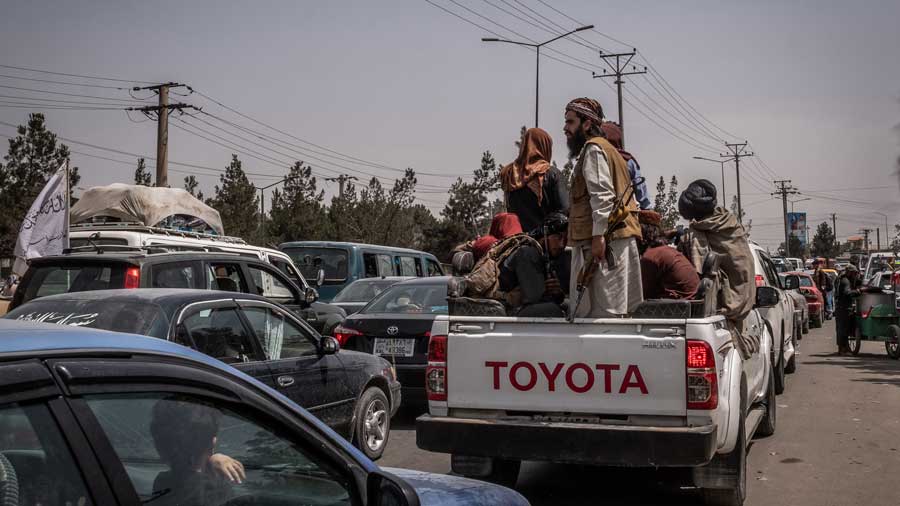
Trouble at the door : The Taliban’s triumph has implications for India’s security
At the risk of anticipating developments, I would like to suggest that in the coming weeks and months, the images from Kabul are likely to be displayed alongside a very different set of photographs: the ball of fire engulfing the twin towers of New York City on September 11, 2001. This time, the message that will be conveyed will be significantly different: the triumph of jihad.
In short, as the larger consequences of the post-American world sink in, there is also likely to be a mythology that is certain to grow around the Taliban and their unflinching commitment to a jihad they believed in. For the moment, the visible celebrations over the Taliban victory may well be confined to some parts of Pakistan and in enclaves dominated by Palestinians. However, there is little doubt that the euphoria over the humiliation of America and the West is certain to generate a new wave of Muslim radicalization globally.
In an incisive study written in 2005, Landscapes of the Jihad, the Oxford academic, Faisal Devji, had observed that Osama bin Laden’s “jihad is global not because it controls people, places and circumstances over vast distances, for Al-Qaeda’s control of such things is negligible... but for precisely the opposite reason: because it is too weak to participate in such a politics of control... [T]he global consequences of Al-Qaeda’s jihad have outstripped its local causes, and so have exceeded its intentions, to take on a life of their own well beyond the politics of control.” In plain terms, global jihad of the type spawned by al-Qaida had been transformed into a hit-and-run operation after 2002. The recovery of Afghanistan has given Islamic jihad a State and a territorial base. The question is: will the resurrected Taliban regime oblige
Reacting to the Taliban takeover and mindful that the role of Pakistan is, once again, likely to come under international scrutiny, its prime minister, Imran Khan, argued that Afghanistan had broken the “shackles of slavery”. Positing the conflict in his neighbouring country as a cultural conflict, he said that Afghans had resisted a bid to make the country “psychologically subservient”.
Khan’s bid to project the Taliban as a personification of Afghan nationalism is understandable, and this is also how China would like it to be. What will be tested in the coming months is the extent to which groups in close ideological proximity to the Taliban factions visualize the future direction of Islamic reorientation. More important, will the Taliban 2.0 overcome their earlier urge to be a global nursery for jihadis all over the world?
This has a deep bearing on India’s national security since in the coming months there will be a concerted bid by sections of the Pakistani State apparatus to transform conflicts in the Kashmir Valley into an Islamist cause célèbre, on a par with Palestine. On its part, China is certain to use its new-found status as a Taliban-friendly world power to either encourage pressing the accelerator on Kashmir or demanding a price for applying the brakes.
For India, the Taliban victory in Afghanistan has brought new foreign policy and security challenges. At present, New Delhi’s old Northern Alliance friends are in disarray but they are certain to regroup and create enclaves of resistance to the Taliban. The choices are clear but difficult: unfriendly indifference or surreptitious encouragement of forces that will not be reconciled to a Taliban-controlled Afghanistan.
One chapter in Afghanistan’s troubled history has ended. A new one may be just beginning.

0 Response to "Trouble at the door : The Taliban’s triumph has implications for India’s security "
Post a Comment
Kalimpong News is a non-profit online News of Kalimpong Press Club managed by KalimNews.
Please be decent while commenting and register yourself with your email id.
Note: only a member of this blog may post a comment.